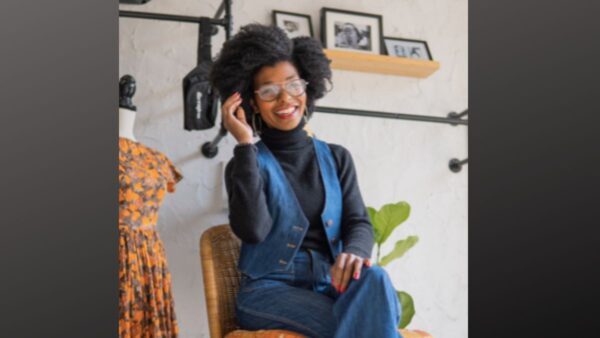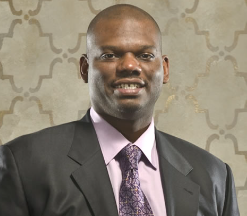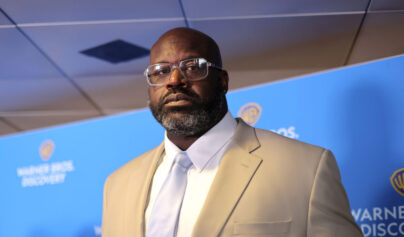The city of Philadelphia has always been an important marker of Black liberation and the civil rights movement, dating back to the early years of the nation and its role in the abolitionist movement. One academic-turned-fashionista has ventured to combine her love for style, the nation’s first capital, and civil rights to create a thrift store that pays homage to the Black struggle, zeroing in on the ’50s, ’60s, and ’70s.

Drexel University professor Kimberly McGlonn has opened Blk Ivy Thrift in “The Bottom” area of West Philadelphia, an area that intersects the college landscapes of the University of Pennsylvania and Drexel University with one of the city’s predominantly Black neighborhoods and its retail strip simply called “The Ave.”
Grand Blvd Started the Vision
Blk Ivy is the latest venture McGlonn has created within her larger Grant Blvd fashion label and boutique that trains and hires formerly incarcerated people to work in a variety of capacities in the company.
“Grant Blvd is a response to slavery, to leased labor, to Jim Crow, to persistent economic injustice and marginalization,” McGlonn explained on the boutique’s website, adding, “Our work to use fashion to create employment opportunities and points of exposure to the skills we all need to find long term peace isn’t about supporting the othered ‘them’ that’ve been incarcerated.”
The focus of Grant Blvd, which can also be seen in Blk Ivy, is racial justice and the use of fashion to fill in the gaps that society leaves open. The twist of this business, which received a Beyoncé BeyGood grant, is to teach a radical understanding of social action by using only old clothes and unwanted fabric to make new saleable pieces: helping the environment while employing individuals often considered unemployable, according to Fast Company.
CBS News reports that before McGlonn created Grant Blvd the space was a garage on the corner of 36th and Lancaster Ave.
McGlonn’s new venture, a thrift store that sells vintage clothing, Blk Ivy, lives inside Grant Blvd’s storefront. Part of the old store has been repurposed part of the location into the civil rights thrift store and museum.
Previously Owned Merchandising As An Industry
McGlonn was already in sustainable fashion before Blk Ivy, but with the new shoppable museum, she labors to preserve the story of the clothing by not adding anything to the used or previously-owned items she sells.
Aside from the educational and justice overtones of the company, McGlonn understands thrifting is a good business to get into.
The United States, according to the Small Business Chronicle, has more than 30,000 resale, consignment, thrift, and antique shops. Customers who shop in these previously owned merchandising outlets spend close to $17 billion annually as an industry.
“The average profit margins for used merchandise retailers are relatively modest. On the bright side, however, thrift stores enjoy the privilege of holding steadfast in all types of economic conditions – the good and the bad,” Brenna Swanston writes in the Small Business Chronicle. “This is so because in times of economic expansion, more people tend to donate inventory to thrift stores, and in times of recession, more people tend to shop at used merchandise retailers.”
Adding, “For this reason, your thrift shop could enjoy steady success in both good economic conditions and bad.”
While many consider their enterprises a “recession-proof” business, mostly because the profit margins are modestly adjusted after much of the wares are donated, McGlonn aims to add a twist, separating her company in the space.
A Shoppable Museum
For McGlonn, her goal with the new shoppable museum is to create a store/museum that optimizes the phrase “fashion as activism,” the PhillyVoice states.
The former 18-year classroom teacher, who currently serves as the curator of the business, said she “wanted to do something that would continue to amplify all that Philadelphia offers American culture by paying homage to the figures who came through Philadelphia in the civil rights movement, and how they use style to tell stories.”
The establishment opened during the 2023 Black History Month commemoration and features not just clothing from the height of the civil rights era, but also various artifacts and items that celebrate Black culture as American culture.
“They’re going to see fashion that’s thrifted and that’s in alignment with the fashion of the ’50s, ’60s, and ’70s,” McGlonn said, “and then, they’ll see vintage pieces that also tell the same story.”
Customers can by previously-owned items in an environment that will remind them of Philadelphia’s role in the civil rights movement starting with Brown vs. Brown and culminating around the time of Shirley Chisholm’s run for president.
The pieces have been collected and personally curated by the educator to tell a story of freedom fighting, including black and white photographs of Dr. Martin Luther King Jr. and actions he led in Philadelphia in 1965 that mobilized 10,000 people.
“Even the photography is going to get you to remember the history of Philadelphia, particularly through the lens of MLK’s involvement,” McGlonn said.
McGlonn says she has acquired books, vinyl records, a rotary telephone (as decoration), and a 1959 Remington typewriter.
“Whenever I’m traveling, I actually pack an extra suitcase to pick up things,” the business owner explained. Many of the vintage clothes she sells come from these trips.
Her Inspiration
The inspiration for the creation of Blk Ivy came from “watching a Netflix documentary about jazz artist Lee Morgan, who donned the Black Ivy style of dress — a uniform of protest and a call to respect Black Americans rooted in button-up shirts, layering of fabrics and denim,” she told Philly Mag. (The late hard bop trumpeter was a Philadelphia native who wore suits and ties just like all the other jazz musicians of his era.)
McGlonn shared that in October 2022, seven months later, while attending a conference in Los Angeles she visited the Arcana bookstore and found a book called “Black Ivy: A Revolt in Style.”
“I grabbed it, knowing intuitively that it was there for me,” she said.
While this is a business venture, McGlonn hopes that marketing, promotion, and foot traffic bring people into the store and discover something with a deeper meaning.
“I hope this is a perennial place for us to stay in conversation with how far we’ve come, and how far we have to go,” McGlonn said.
A Bigger Plan
Next up for McGlonn is an idea called the Fashion the Future Forward initiative with Grand Blvd.
This will be a part of the nonprofit arm of her business, launching in 2023 called the Green Labor Lab.
“Our mission is to lobby for equal wages and education about sustainable living and also workforce development, particularly for women who are formerly incarcerated,” she said.
With the program, she hopes to create even more living-wage jobs and identify women interested in learning to tailor, seamstressing, and/ or train them in sewing arts, as a way to restore Philadelphia as textile manufacturing center for the nation.
“We haven’t given up on the need to really revitalize that industry,” the Blk Ivy owner states. “This is one way to do it.”




